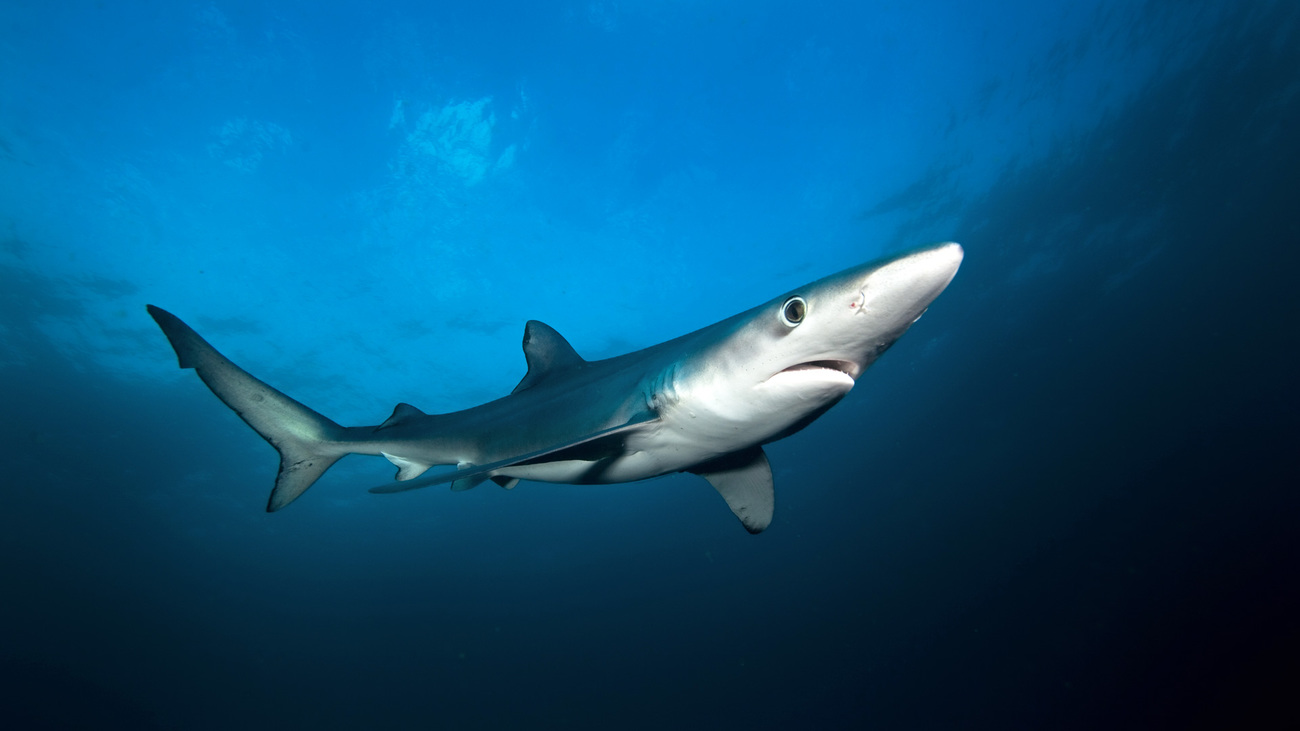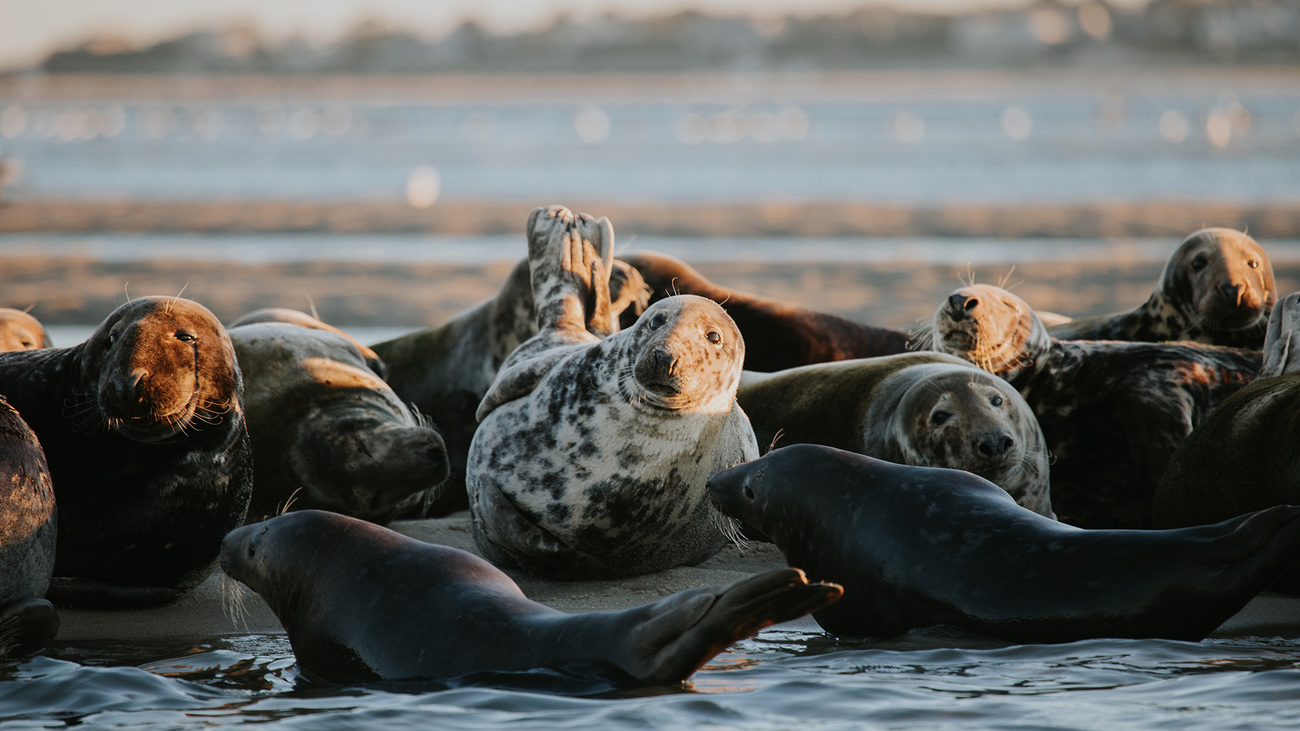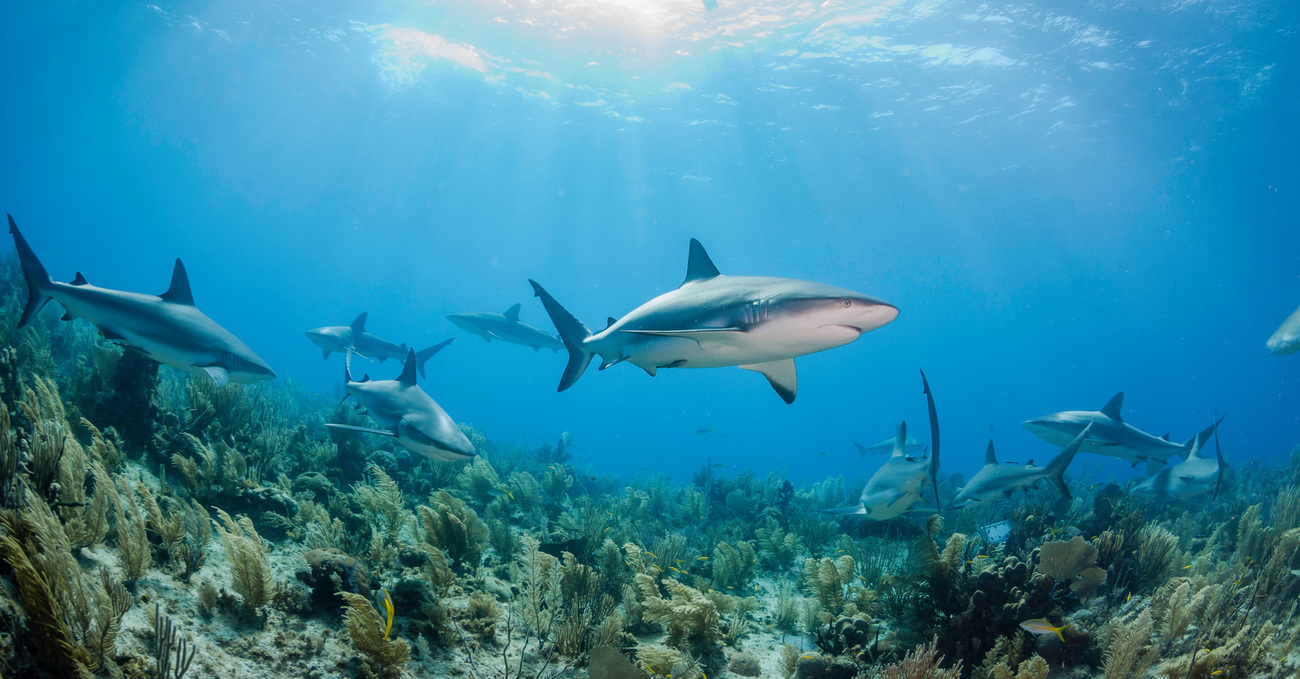Azzedine Downes
I have never been satisfied with just fighting the good fight. We need to actually make a difference.
The changing tides: Why are sharks increasingly approaching our shores?

Recent increased sightings of sharks approaching shores have sparked concern and curiosity among the public. But just because we see more sharks close to our beaches does not mean there are more sharks in the ocean. On the contrary, many shark species are more endangered now than ever before.
It is important to delve deeper into the reasons behind this phenomenon, rather than succumbing to fear. Could climate change play a role in the changing behaviours and habitat use of sharks? The short answer is yes, but here’s how.
This year has seen the highest recorded global temperatures in 100,000 years, according to a study by Carolyn W. Snyder, with significant and unprecedented global rising sea surface temperatures.
The rapidly warming ocean has triggered an unprecedented mass migration of marine life. The rising temperatures are pushing many marine species, including some sharks, towards the poles, especially in summer months as they seek cooler waters, which means they are moving into new habitats, including coasts where they are not usually present.
The ocean is a dynamic environment with a delicate balance of predators and prey. Climate change has contributed to rising sea temperatures and altered ocean currents, leading to shifts in prey distribution. Consequently, sharks may need to venture closer to shores in search of food sources. For example, the rebounding seal populations here in Cape Cod in the US are thought to be a factor in the increased sightings of white sharks. This increased proximity raises the likelihood of human-shark interactions, necessitating greater caution and awareness.

While climate change is a significant factor influencing shark behavior, human activities exacerbate the situation. Overfishing, characterised by wasteful practices and depleted fish populations, disrupts the natural balance of marine ecosystems. As a result, sharks may be pushed to seek new hunting grounds and may approach shores in search of their usual prey, such as seals or smaller fish.
Coastal development can lead to the decline of vital habitats like coral reefs, displacing various species, sharks included. Consequently, sharks may be forced to explore new territories, potentially leading them towards coastal areas where their presence may be more visible.
Disregarding their existence, we continue to destroy their natural habitat and enter it with the expectation of possession. While popular culture has often portrayed sharks as monstrous creatures, in reality they are rarely as dangerous as portrayed, and we are not the victims in this storyline. Just to put things into perspective, 100 million sharks are killed by humans every year.
While most terrestrial organisms release their carbon into the atmosphere after their death, carcasses of large marine animals, including sharks, do not—they sink and sequester carbon in the deep ocean.
Here’s how it works: Carbon dioxide (CO2) is a greenhouse gas that traps heat in the Earth’s atmosphere—leading to global warming and climate-related problems. By storing carbon in the ocean, we can help reduce the amount of CO2 in the atmosphere, which in turn helps to slow down global warming.
This means sharks and other marine life can serve as a nature-based solution to climate change and must be valued and protected for this service they provide.
According to the study ‘Let more big fish sink’, rebuilding fish stocks—which can be done by establishing marine protected areas and changing the way we fish—can benefit carbon storage in three ways:

It is essential to recognise the importance of shark conservation. Sharks play a vital role as apex predators in maintaining healthy marine ecosystems. Coexistence is possible, and by taking these proactive measures, we can mitigate risks while protecting these magnificent creatures:
I also want to emphasise the importance of government preparedness in regions experiencing an increase in shark activity. It is crucial to implement strategies that prioritise public safety and foster coexistence. Advanced technology can play a significant role in achieving this goal. Utilising drones for monitoring and surveillance during busy seasons, in coordination with local beaches, can provide timely warnings to the public and help prevent potential consequences, such as human and wildlife casualties. By proactively employing such measures, we can enhance safety, raise awareness, and ensure a harmonious relationship between humans and sharks in these areas.
The increased presence of sharks near shores is a multifaceted issue influenced by climate change, disrupted ecosystems, human activities, and social media—more sightings could be linked to the fact that nowadays everyone walks around with a phone on the beach and can create a splash about a shark sighting. But I’m hoping after explaining the reasons behind this, you’ll be reminded of the threats sharks are facing, and while it’s hard, try to understand ‘survival’ and the things you’re willing to do to live—now that’s the shark take.
Climate change is changing the world as we know it. We are experiencing extreme weather changes, and natural disasters are striking more periodically than we’re prepared to handle. But we are not alone—wildlife is suffering too, but they very much could be a natural solution to mitigate it, so let’s protect them before it’s too late for them and too late for us.
We must work towards coexistence with sharks. By doing so, we ensure the survival of not only sharks but also the entire marine ecosystem that depends on their presence.
Azzedine Downes
I have never been satisfied with just fighting the good fight. We need to actually make a difference.
Our work can’t get done without you. Please give what you can to help animals thrive.
Unfortunately, the browser you use is outdated and does not allow you to display the site correctly. Please install any of the modern browsers, for example:
Google Chrome Firefox Safari